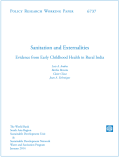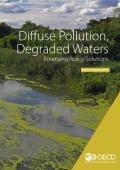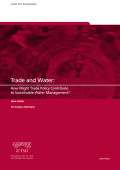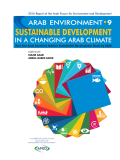
The paper "Sanitation and Externalities: Evidence from Early Childhood Health in Rural India" estimates two sources of benefits related to sanitation infrastructure access on early childhood health: a direct benefit a household receives when moving from open to fixed-point defecation or from unimproved sanitation to improved sanitation, and an external benefit (externality) produced by the neighborhood’s access to sanitation infrastructure. The paper uses a sample of children under 48 months in rural areas of India from the Third Round of District Level Household Survey 2007– 08 and finds evidence of positive and significant direct benefits and concave positive external effects for both improved sanitation and fixed-point defecation. There is a 47 percent reduction in diarrhea prevalence between children living in a household without access to improved sanitation in a village without coverage of improved sanitation and children living in a household with access to improved sanitation in a village with complete coverage. One-fourth of this benefit is due to the direct benefit leaving the rest to external gains.

After decades of regulation and investment to reduce point source water pollution, OECD countries still face water quality challenges (e.g. eutrophication) from diffuse agricultural and urban sources of pollution, i.e. pollution from surface runoff, soil filtration and atmospheric deposition. The relative lack of progress reflects the complexities of controlling multiple pollutants from multiple sources, their high spatial and temporal variability, the associated transactions costs, and limited political acceptability of regulatory measures.
The OECD report Diffuse Pollution, Degraded Waters: Emerging Policy Solutions (OECD, 2017) outlines the water quality challenges facing OECD countries today. It presents a range of policy instruments and innovative case studies of diffuse pollution control and concludes with an integrated policy framework to tackle this challenge. An optimal approach will likely entail a mix of policy interventions reflecting the basic OECD principles of water quality management – pollution prevention, treatment at source, the polluter pays and the beneficiary pays principles, equity, and policy coherence.

Water is at the centre of economic and social development: it is vital to maintain health, generate energy and create jobs while sustaining the natural environment. A wide variety of economic, social and environmental services are derived from water resources, ranging from water supply and hydropower generation to navigation and recreation. Water resources are also an integral part of the natural environment, supporting biodiversity as well as underpinning the agriculture which provides the world’s food. This paper identifies some of the key intersections between trade policy and water management, in areas such as agriculture, hydropower generation, water services and wastewater management. While the local nature of water systems and the diversity of water management objectives is not conducive to the application of trade instruments to enforce a prescriptive, one-size-fits-all, approach to water management, the paper identifies a range of areas in which trade policy could support the sustainable management of water.

This AFED report on "Sustainable Development in a Changing Arab Climate" recommends an alternative approach, based on integrating sustainable development principles within the anticipated rebuilding efforts. It calls upon local, regional, and international aid organizations not to limit their efforts to providing safety and basic necessities to those affected, but rather to use the relief plans as a launch pad for promoting new approaches to development, rooted in a transition to green economy.
This report, on prospects and challenges on the path towards achieving the SDGs, builds on the previous eight reports on the state of Arab environment, produced by the Arab Forum for Environment and Development (AFED) since 2008. AFED annual reports have so far addressed major development issues in the Arab region, including Water, Food Security, Energy, Green Economy, Ecological Footprint, Sustainable Consumption, and Climate Change. The report highlights the policy options available for the Arab countries to realize the Sustainable Development Goals by the 2030 target set by the United Nations, in light of the new political, economic, and social developments.
This report provides a comprehensive assessment of the economic consequences of outdoor air pollution in the coming decades, focusing on the impacts on mortality, morbidity, and changes in crop yields as caused by high concentrations of pollutants. Unless more stringent policies are adopted, findings point to a significant increase in global emissions and concentrations of air pollutants, with severe impacts on human health and the environment. The market impacts of outdoor air pollution are projected to lead to significant economic costs, which are illustrated at the regional and sectoral levels, and to substantial annual global welfare costs.
